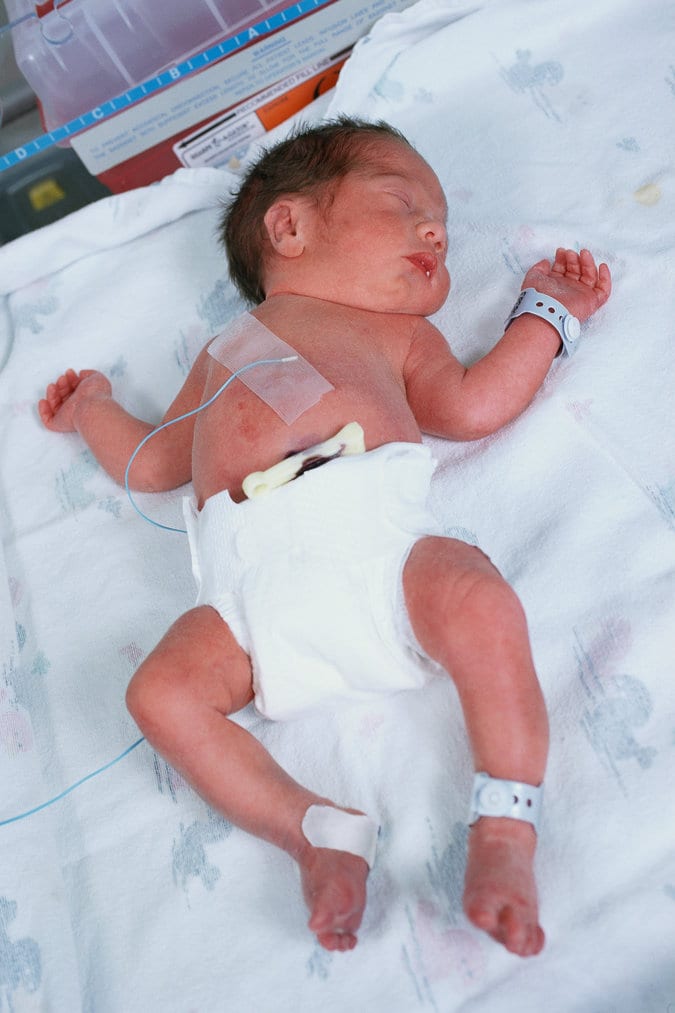Premature Baby Care At Home
Taking Care of Your Premature Baby. The first few weeks at home with a preemie can be especially trying, whether your baby was born at 26 or 36 weeks. Here are five things every parent should keep in mind for their premature baby care at home:
I got the thermoregulation blues
Your born-too-early baby lacks enough fat under her skin to keep herself warm unless she is sufficiently swaddled. Don’t crank up the thermostat to 80º F (after all, Eskimos have babies, too). Instead, wrap your baby in layers, such as a body suit, followed by another layer, and perhaps a blanket, depending on how cool you keep your house. Wise parents wrap their babies in more than one layer for easy adjustments as the baby gets too warm or feels too cool.
For the first day or so, take your baby’s temperature before feeding or bathing her, just as you did in the hospital. Then you will know how she reacts to what is a normal temperature for your household. Add or subtract layers accordingly.
To get an accurate reading, place the thermometer under her arm. A normal temp is 98º – 99º F; any temp of 100º F+ is a sign of illness.
ALSO READ: 3 Reasons to Delay Your Newborn’s First Bath and How To Bathe Your Premature Baby
Also, don’t use a heating pad to warm the crib, rather warm bedding and blankets by tossing in the dryer on the ‘delicate’ setting for 5 minutes.
Your baby is experiencing cold stress if she has cool hands or feet, is sleepy, or feeding poorly. Your baby is experiencing heat stress if she is warm to the touch, red or flushed in coloring, crying, or has a visible ‘prickly heat’ rash.
Feeding frenzy?
Your preemie baby needs to eat every 2 to 4 hours to consistently gain weight. Do NOT let the baby sleep for more than 4 hours at one time during the first few weeks. Check with your healthcare provider to learn when it’s OK to let her sleep longer than 4 hours at a time.
Breastfeeding? Avoid fasting during the night to keep your blood sugar from dropping too low. Think about it: the baby is taking nourishment from you; you need replenishment! Those decreased hormones of pregnancy can cause postpartum depression…and hypoglycemia makes it worse.
Set up a breastfeeding station for nights. Before turning in, arrange a plate of wholesome snacks and a pitcher of juice and/or water at your station. You don’t need to drink milk to make milk. The idea is to get yourself into a routine, do as little as you have to, and feed both you and your baby at the same time.
When it’s time to feed the baby, get up and go potty, wash your hands, change diaper, cleanse hands, and then feed baby and yourself simultaneously! The whole session should take about 30 minutes.
Don’t be the rabbit
Preemies by definition have reduced resistance to germs, viruses, and bacteria in their world – they’re immunosuppressed. It may take up to two years to fully gain immunity to the world we live in. Meanwhile, what‘s a preemie parent to do? Go ahead and be diligent about what you will allow people to do and not do around your baby. You have our permission to blame the NICU docs and nurses, who have implored you to guard the health of your preemie. Here’s how:
- Wash your hands before and after every diaper change
- Limit visitors and absolutely no visits from anyone who is sick
- Play the ‘NICU card’ for doctor’s appointment times (early or latest in the day)
- Keep up with routine vaccinations (talk to your healthcare provider about RSV and flu vaccinations for both you and the baby )
- DO NOT ALLOW SMOKING anywhere around your baby
We have a range of articles that deal with caring for your baby if she is preterm, Visit Born Too Early (Prematurity)
You should also read Newborn Skin Care Basics and visit our Diapering Zone where you can see our Diaper Rash Guide.
FURTHER READING:






Comments are closed.